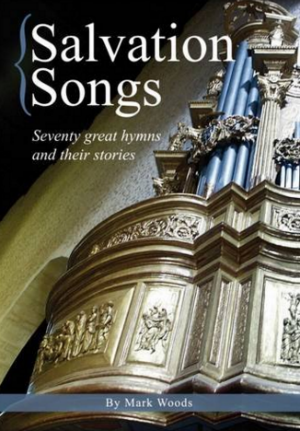Salvation songs - hymns and their stories
Knowing the backgrounds to the hymns which fed our ancestors adds a rich layer of understanding to our spiritual lives, writes Mark Woods
 I love some of the new songs we sing today. We need new ways to sing old truths, and I'm glad of it. However, we shouldn't ignore the wisdom and insights of the past. The songs that fed our spiritual ancestors can feed us too.
I love some of the new songs we sing today. We need new ways to sing old truths, and I'm glad of it. However, we shouldn't ignore the wisdom and insights of the past. The songs that fed our spiritual ancestors can feed us too.
But some of the old hymns have to be taught, theologically and poetically; and when we've learned them, we've added a rich layer of understanding to our spiritual lives.
The old songs of the Church burned themselves into my brain long before I was able to understand them. I loved the precision of the rhymes, the regular beat of the words and the oddities of expression.
I was fascinated, too, by the names and dates at the bottom of each song. Who were these people? So over the years I found out what I could, and I discovered that knowing something about the writers enriched the writing. Eventually, out of a monthly column for a church magazine resources website, came a book.
There were some frustrations. Some writers left very little biography behind them. Take the wonderfully-named Thomas Hornblower Gill (1819-1906), for instance. He wrote We come unto our fathers' God, a great hymn about the communion of saints, and was highly regarded in his day. In spite of his longevity, a would-be biographer was forced to conclude that "his life has been singularly devoid of outward incident".
Or there's Robert Walmsley, author of the beautiful hymn Come, let us sing of a wonderful love. Walmsley was Congregationalist, a jeweller in Sale, Cheshire, and deeply involved in the Manchester Sunday School Union. I couldn't find out anything more, though perhaps local historians know.
Just as I am
On the other hand, some writers who've lived quiet lives have wonderful stories; perhaps they all do, whether we know them or not. Take the lovely Just as I am, a great evangelistic hymn that's probably accompanied more souls to salvation than any other because of its use in Billy Graham campaigns.
It was written by Charlotte Elliott in 1834. She was an invalid who struggled with depression and was converted through a conversation with a minister named Cesar Malan. He asked her at dinner if she were a Christian and she brushed him off irritably, but later said, "I want to come to Jesus but I don't know how."
"Why not come just as you are?" he said.
Later her brother, also a minister, was organising a bazaar and she was frustrated at not being able to help. But Malan's words came back to her and she wrote Just as I am – "poor, wretched, blind", "tossed about with many a conflict", "O Lamb of God, I come." The repeated last line is hypnotic. Charlotte won her faith through profound trials, and God her through them all.
The Thirty Years War - and thanking God
There are some shocking stories. Some of the great German hymns, many translated by Catherine Winkworth, come from the period of the Thirty Years War, barely known in this country but a lasting trauma in Germany. Martin Rinkart, the author of Now thank we all our God, ministered in the shadow of the conflict, during which up to 30 per cent of the population died. In some areas it was between 50 and 75 per cent.
Towards the end of the war his town was flooded with refugees, and famine and plague carried off thousands. Rinkart found himself conducting 50 funerals a day. The besieging Swedish army demanded a huge ransom to leave the city alone; Rinkart went out to plead with them for mercy, and impressed by his courage they withdrew.
That hymn – after all that blood and horror – was a thanksgiving for deliverance. There are two tunes usually set to it, Cruger's solemn contemporary Nun Danket and the chirpy Gracias by Geoffrey Beaumont. Gracias is delightful, but after realising the hymn's origin I'm far more likely to go for Cruger.
The dark side of All things bright and beautiful
Another shock was delving into the origins of All things bright and beautiful. Again, it's a cheerful song, but it has a dark side. Most people know it included a verse that isn't now sung:
The rich man in his castle,
The poor man at his gate;
God made them, high or lowly,
And ordered their estate.
The author, Mrs Alexander (1818-95), was the wife of a Church of Ireland clergyman who was to become Archbishop of Armagh. A representative of the Protestant ruling class, she lived through the Irish potato famine that killed a million people between 1845 and 1852. The "rich man in his castle" was the Protestant master; the "poor man at his gate" was the starving Irish peasant. The hymn was written in 1848.
Understanding where these hymns came from – and how they work as poetry and literature – teaches us how to sing them with understanding. They were written by people like us, but facing different issues in different worlds. The fact that they still speak is testimony to their own skill, but also to the power of the Spirit and the communion of saints across the ages.
Mark Woods is a Baptist minister and journalist
Baptist Times, 03/03/2016